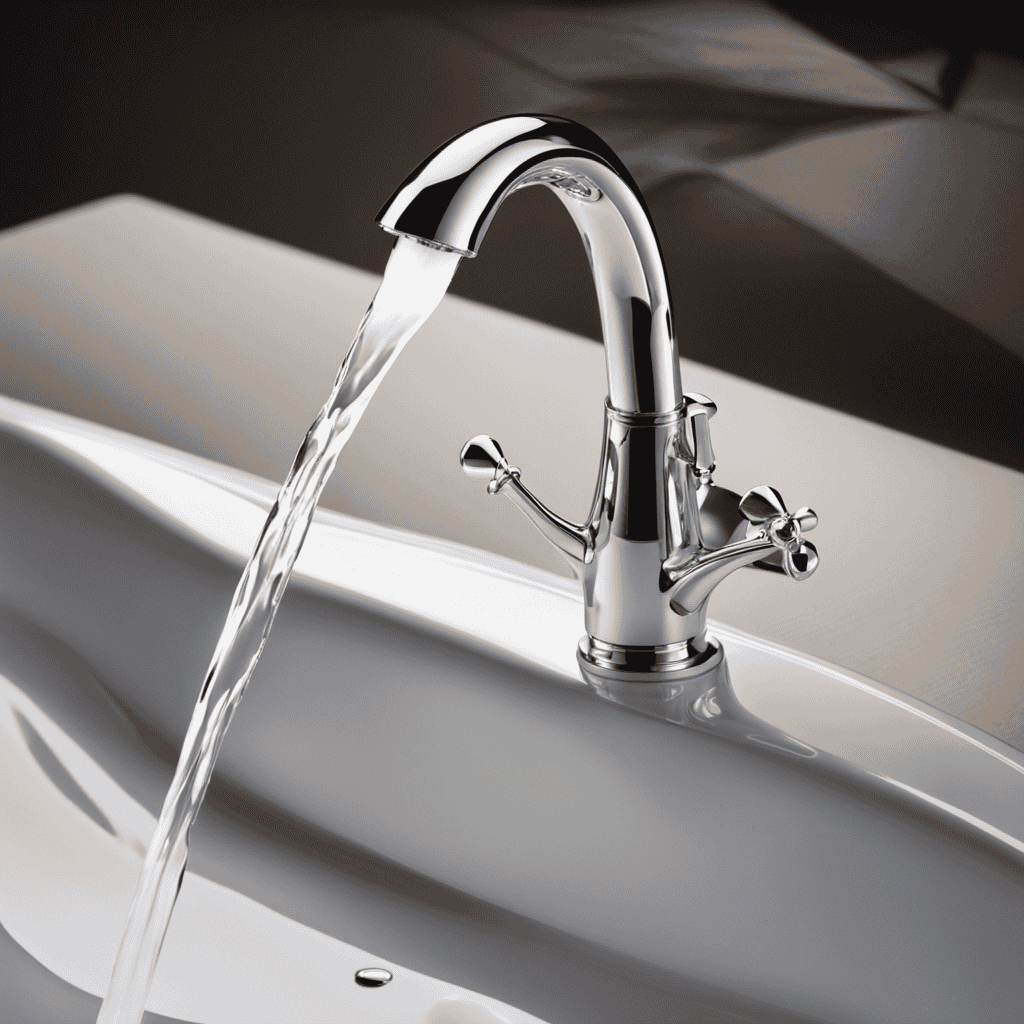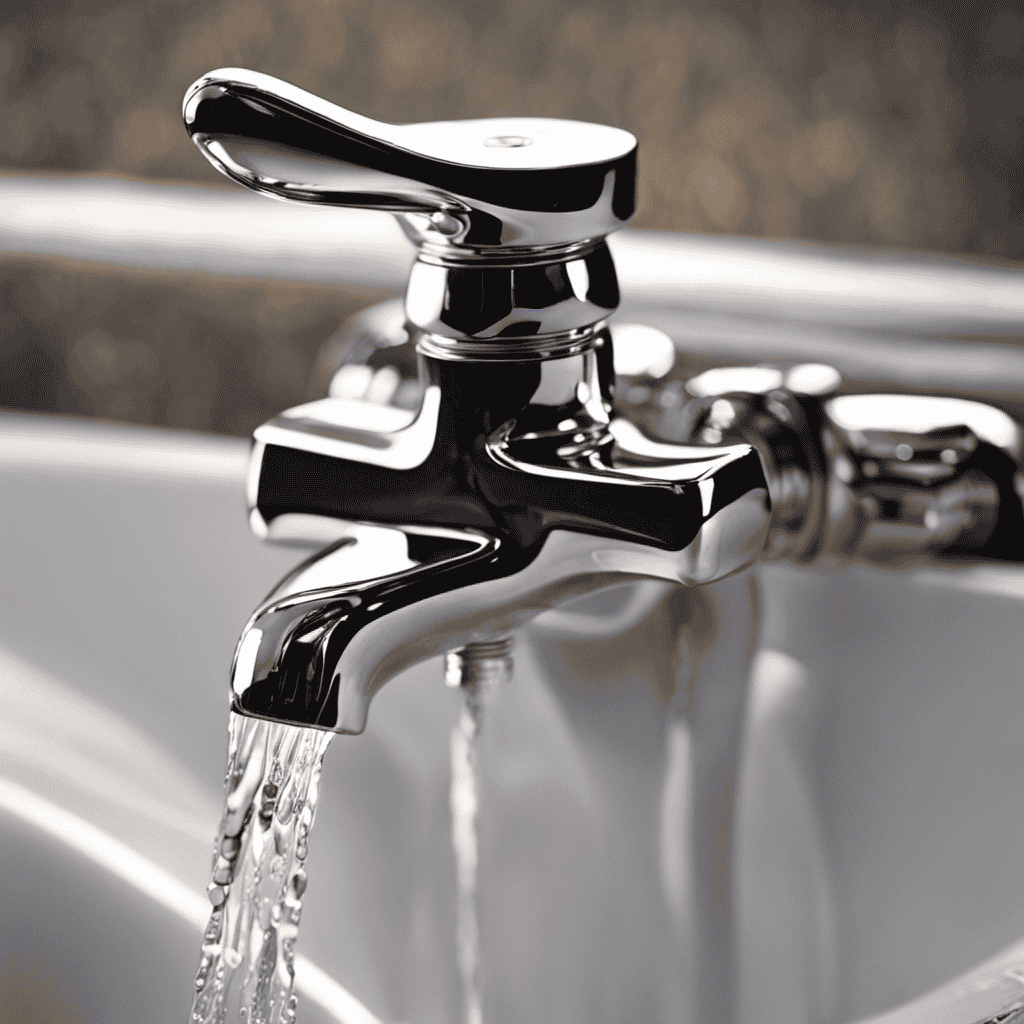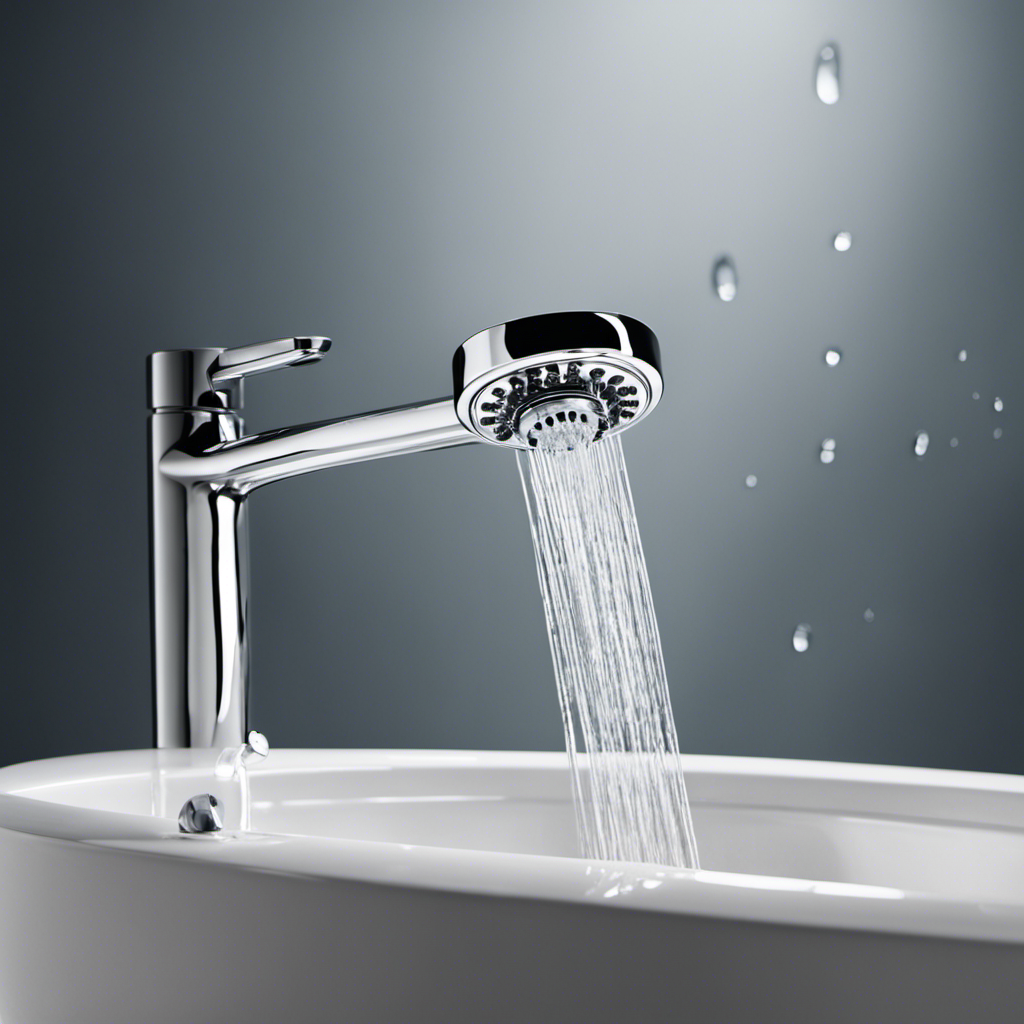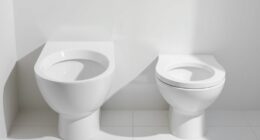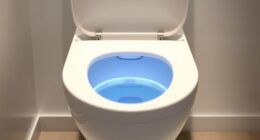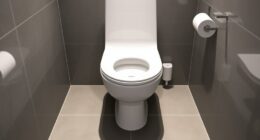As a homeowner, I know how frustrating it can be to deal with a leaky bathtub faucet. It’s like trying to stop a leak in a dam with a band-aid.
But fear not, because in this article, I’ll guide you through the common causes of bathtub faucet leaks, how to identify them, and provide DIY fixes.
And if all else fails, I’ll also let you know when it’s time to call in the professionals.
So let’s dive in and put an end to those pesky leaks once and for all.
Key Takeaways
- Bathtub faucet leaks can be caused by worn-out washers, damaged valves, loose handles, and corroded plumbing connections.
- The impact of bathtub faucet leaks includes potential water damage, risk of mold growth, increased water bills, and wasted water.
- Signs of a leaking bathtub faucet include water dripping from the spout or handle and weaker than usual water pressure.
- DIY fixes for a leaking bathtub faucet include tightening the handle, replacing worn-out washers, and testing for leaks after repairs.
Common Causes of Bathtub Faucet Leaks
One common cause of a bathtub faucet leak is worn-out washers that need to be replaced. When washers become old and deteriorated, they fail to create a tight seal, allowing water to seep through and cause a leak.
Ignoring a leaking bathtub faucet can lead to potential dangers, such as water damage to the surrounding areas, mold growth, and increased water bills. It is important to address and fix the leak promptly to prevent further damage.
Additionally, bathtub faucet leaks have an impact on water conservation. Every drop counts, and even a small leak can waste a significant amount of water over time. By fixing leaks, we can contribute to conserving water and reducing our environmental footprint.
Transitioning into the next section, let’s explore how to identify a leaking bathtub faucet.
How to Identify a Leaking Bathtub Faucet
To identify a leaking bathtub faucet, you should check for any signs of water dripping from the spout or handle. Additionally, you can test the water pressure by turning on the faucet and observing if it is weaker than usual. This can indicate a leak in the system.
There are different types of bathtub faucets that can cause leaks, such as compression faucets, ball faucets, cartridge faucets, and ceramic disk faucets. Each type has its own unique design and mechanism, which can help determine the source of the leak. It is important to identify the type of faucet you have in order to troubleshoot and fix the issue effectively.
DIY Fixes for a Leaking Bathtub Faucet
If you’re experiencing a leaking bathtub faucet, you can try tightening the handle or replacing the worn-out washer to fix the issue. These are temporary fixes that can help stop or reduce the leakage until you can perform a more thorough repair.
To tighten the handle, you will need a screwdriver or an adjustable wrench, depending on the type of handle you have. Simply locate the screw or nut underneath the handle and tighten it clockwise.
If the leak persists, you will need to replace the washer. For this, you will need a pair of pliers and a new washer that matches the size of the existing one. Remove the handle, unscrew the packing nut, and replace the washer. Reassemble the faucet and test for leaks.
Remember to turn off the water supply before starting any repairs.
When to Call a Professional for a Leaking Bathtub Faucet
Sometimes it’s best to consult a professional when dealing with a persistent leak in your bathtub. While there are DIY fixes that can temporarily address the issue, certain signs indicate a more serious plumbing problem that requires expert attention.
These signs include low water pressure, rusty water, or multiple leaks throughout your home. Ignoring a leaking bathtub faucet can lead to potential costs down the line. A small leak can waste a significant amount of water, causing your water bill to skyrocket. Additionally, the constant presence of moisture can lead to the growth of mold and mildew, which can be harmful to your health and require costly remediation.
To prevent future bathtub faucet leaks, it’s important to address the root cause of the problem and ensure proper installation and maintenance.
Preventing Future Bathtub Faucet Leaks
You can prevent future leaks in your bathtub by regularly checking and maintaining the seals and connections. By taking a proactive approach to maintenance, you can avoid the hassle and expense of dealing with leaks in the future. One important step in preventing leaks is choosing the right bathtub faucet for your bathroom renovation. Consider factors such as the type of faucet (single-handle or double-handle), the material (brass, chrome, or stainless steel), and the design (modern or traditional). Additionally, implementing water conservation tips for bathtubs can help reduce the risk of leaks and save water. This can include installing a low-flow showerhead, taking shorter showers, and fixing any leaks promptly. By following these steps, you can ensure the long-lasting functionality of your bathtub faucet and contribute to water conservation efforts.
| Factor | Considerations |
|---|---|
| Type of faucet | Single-handle or double-handle |
| Material | Brass, chrome, or stainless steel |
| Design | Modern or traditional |
| Water conservation | Low-flow showerhead, shorter showers, fix leaks |
Conclusion
In conclusion, a leaking bathtub faucet can be a frustrating and costly problem. By identifying the common causes and learning how to fix it yourself, you can save time and money.
However, if the issue persists or if you’re unsure about tackling the repair, it’s best to call a professional. Remember, prevention is key, so make sure to take the necessary steps to avoid future leaks.
Don’t let a small leak turn into a big headache.
Stay tuned for more tips and tricks to keep your home in top shape.
